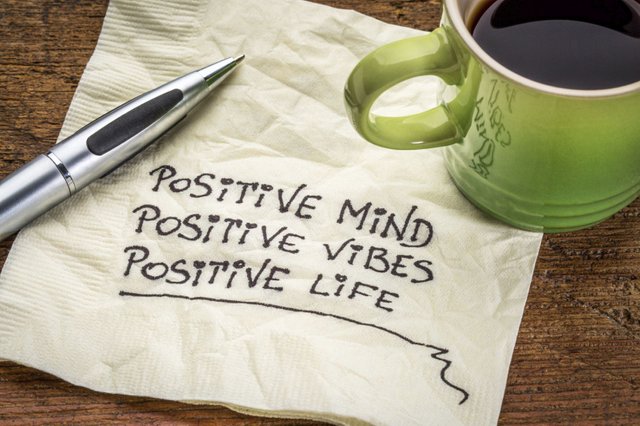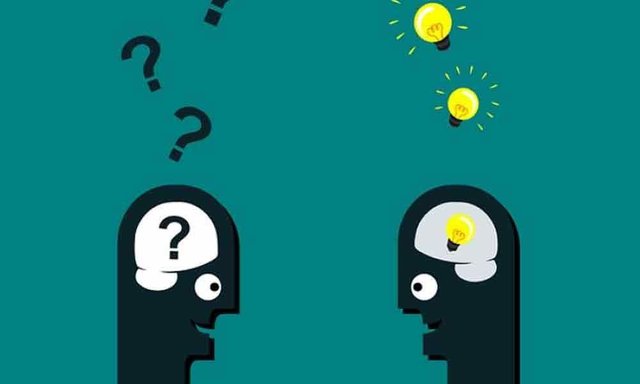Your Attitude: What it is and How it Influences You
In human psychology, attitude is an emotional construct, a complex mental and personal entity which defines an individual, and in which he or she may be either consciously aware or subconsciously inclined. They are an acquired state over time and are very complicated. Attitude is a set of selective behaviors that people adopt in response to external stimuli such as moods, beliefs, expectations and experiences. It is important to remember that attitude is not rational, and is largely influenced by the five senses.

When people adopt an attitude, it is the result of a cognitive procedure that evaluates current situations and their potential implications. The resulting attitude will be one that is in line with the individual's desires, and that tends to promote future positive outcomes. People tend to evaluate situations and prospects in terms of their own current situation and their potential future as well. This sets up an internal conflict for an individual whose attitude and behavior tend to override his or her cognitive process and thus produces a positive or negative attitude.
The dissonance theory says that people can also change their attitudes to more desirable ones. The theory claims that some people are born with a favorable attitude and that favorable behavior can be changed. The underlying assumption of the dissonance theory is that people have to come to terms with the reality that they are always agents of their own behavior and that, therefore, they can alter their attitude to more desirable ends. The tension between what we believe and what we feel, however, is part of what makes life so difficult. We cannot always remove the tension, but we can learn to manage it and use it to our advantage.
The goal of this paper is to provide social psychologists with the information that they need to help people understand the ways that attitudes influence their behavior. We begin by describing the cognitive processes through which attitudes influence behavior. We then review the literature on the various ways that attitudes influence people's social actions. Finally, we review two theories that pertain to attitudes and their role in behavior. This research will help introduce and expand the literature on attitudes and their effects on behavior.
The cognitive component of an attitude refers to the inner mental state that an attitude evokes. An attitude might be informative (e.g., "I am an optimist") or it could be motivational (e.g., "I am determined to achieve my goals"). We can label an attitude as cognitive if it has a consistent mental state over time and it is specific. An attitude that is generic, however, will not have a consistent cognitive component over time.
The second component of an attitude refers to the cognitive processes that result in an attitude. These processes can be conscious or unconscious. An unconscious attitude can have a positive affect on an individual; however, an unconscious attitude can also lead to a negative affect, if it leads an individual to perceive the world in terms of negatives. In this case, people around the person who holds the negative attitude would interpret his behavior in a negative way. Conversely, a conscious attitude can be self-reinforcing.
The third component of an attitude refers to the behavioral component of an attitude. The behavior that an attitude evokes can be conscious or unconscious. A person can choose to act upon a belief, and then the belief can affect his actions. The beliefs that an attitude evokes are a cognitive component of that attitude. If those beliefs are inconsistent with what is happening around them, the behavior can still be correct (e.g., a person may throw a dart at a ball if he is afraid someone is going to throw a dart at him). However, the behavior will not be accurate because it does not match the beliefs the person is holding.

An attitude can affect behavior in three different ways: cognitively, morally and negatively. A person's attitude can affect how he acts, but it cannot affect how he feels. A person's attitude can affect his behavior in a way other than the ways mentioned here. These three components - affective component, behavioral component and cognitive component - are used in all kinds of attitudes, including positive, negative, neutral and anxious attitudes.
Congratulations! Your post has been selected as a daily Steemit truffle! It is listed on rank 7 of all contributions awarded today. You can find the TOP DAILY TRUFFLE PICKS HERE.
I upvoted your contribution because to my mind your post is at least 8 SBD worth and should receive 63 votes. It's now up to the lovely Steemit community to make this come true.
I am
TrufflePig, an Artificial Intelligence Bot that helps minnows and content curators using Machine Learning. If you are curious how I select content, you can find an explanation here!Have a nice day and sincerely yours,

TrufflePig